About the Member Identification card
All Denver Health Medical Plan members will receive a Member Identification (ID) card upon enrollment. The ID card lists the most common services. Members will need to have this card with them when accessing care. For replacement cards, members can log into the Member Portal or call Health Plan Services at 303-602-2100.
- Teal Stripe - DHHA, Elevate Health Plans (Exchange/CO Option)
- Orange Stripe - Elevate Medicare Select (HMO), Elevate Medicare Choice (HMO D-SNP)
- Blue Stripe - Elevate Medicaid Choice, Elevate CHP+
Definitions
Cost sharing means the amount you pay for your healthcare services out of your own pocket, which is not covered by your insurance. This usually involves deductibles (the amount you pay before your insurance starts paying), coinsurance (a percentage of the cost you share for a service), and copayments (a fixed fee you pay for a service). However, it doesn't include the monthly premium payments you make for your insurance plan, extra charges from out-of-network providers, or costs for services that your insurance doesn't cover.
Each health plan has a group number that identifies the specific benefits associated with your plan.
Each person covered by a health insurance plan has a unique ID number that allows healthcare providers and their staff to verify coverage and arrange payment for services. It’s also the number health insurers use to look up specific members and answer questions about claims and benefits.
Refers to a specified group of physicians, hospitals, medical clinics and other health care providers that your plan may require you to use in order for you to get any coverage at all under the plan, or that the plan may encourage you to use because it may pay more of your bill if you use their network providers (i.e., go in-network) than if you do not (i.e., go out-of-network).
Preventive care visits/services are designed to keep you healthy or to prevent illness, and are not intended to treat an existing illness, injury or condition.
The practitioner (physician, nurse practitioner or physician’s assistant) that you choose from your plan network to supervise, coordinate and provide initial and basic care to you. The personal provider initiates referrals for specialist care and maintains continuity of patient care (usually a physician practicing internal medicine, family practice or pediatrics).
Rx, also referred to as prescription, is an official document written by a licensed medical practitioner that authorizes a patient to be provided a medicine or treatment.
Medical care rendered by a specialist (e.g., urologist, cardiologist) rather than a primary care physician.
Member ID Card Examples by Line of Business
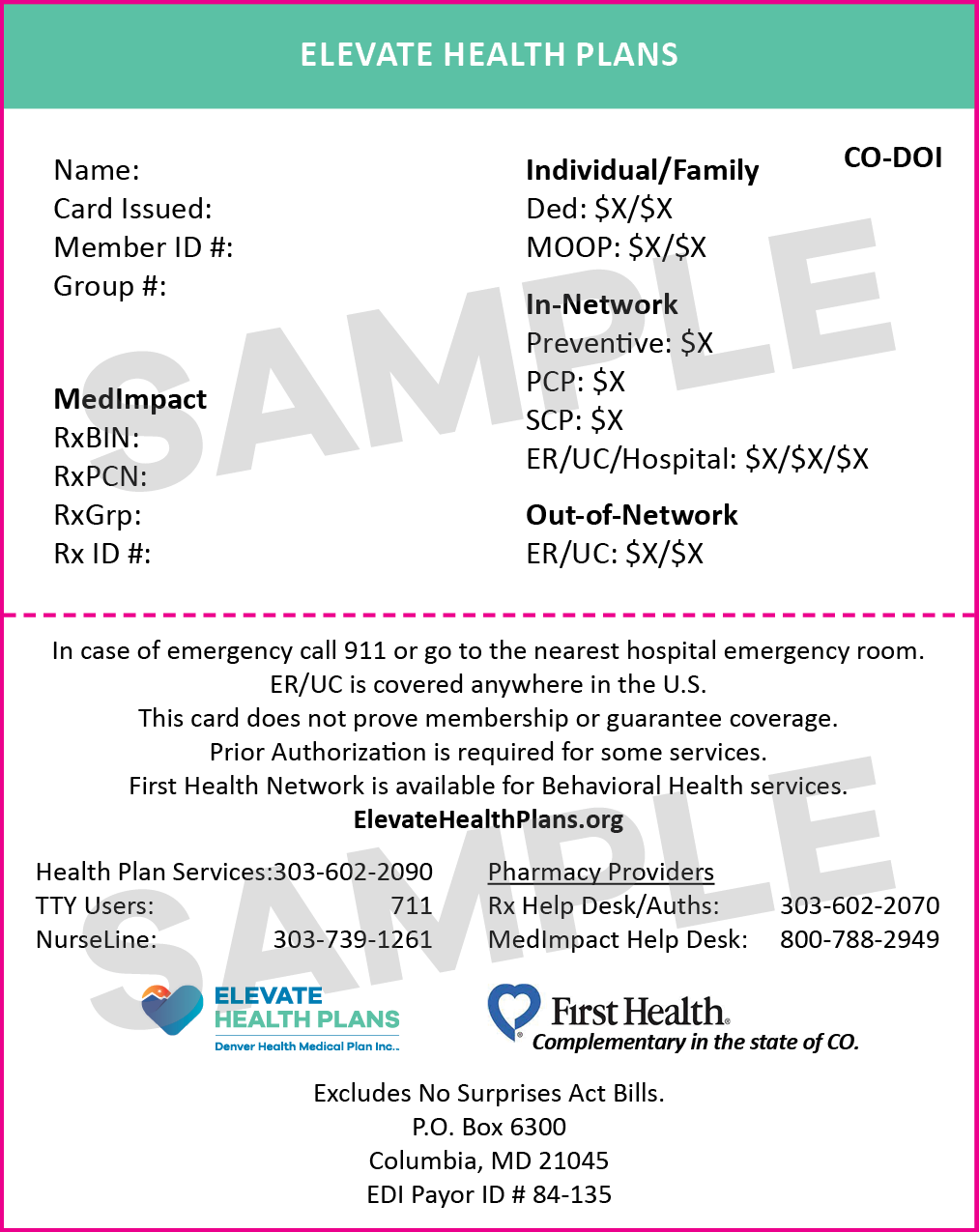
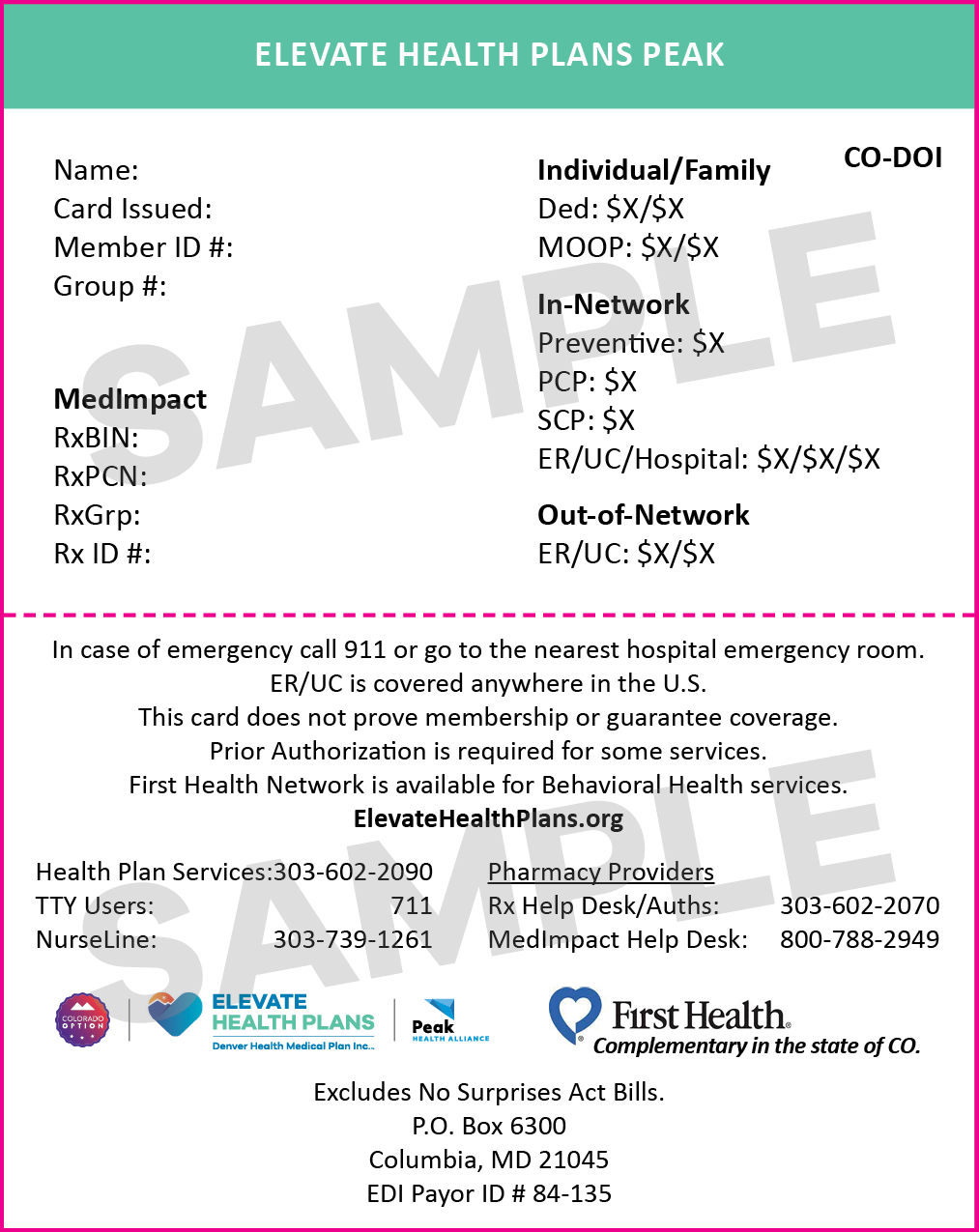
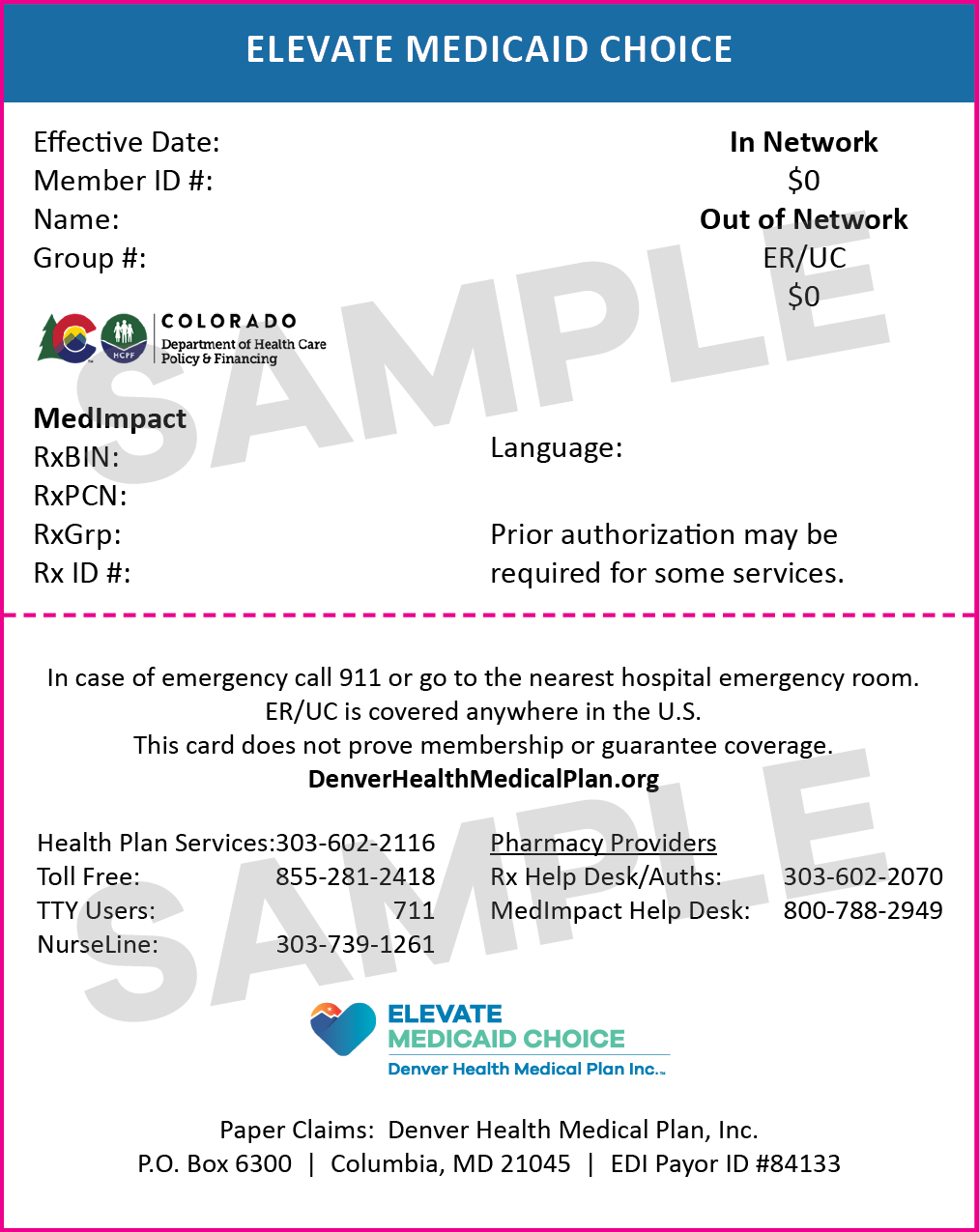
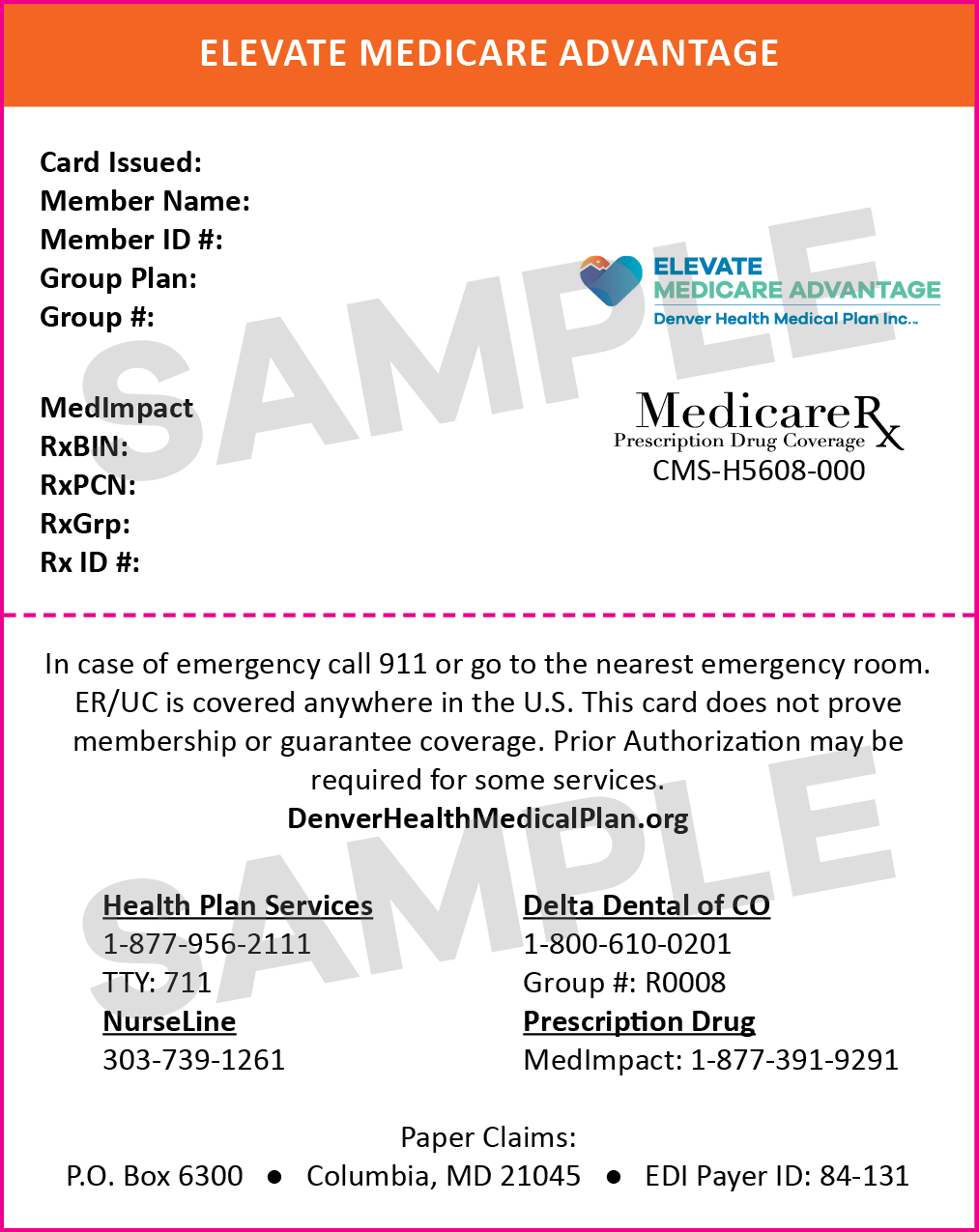
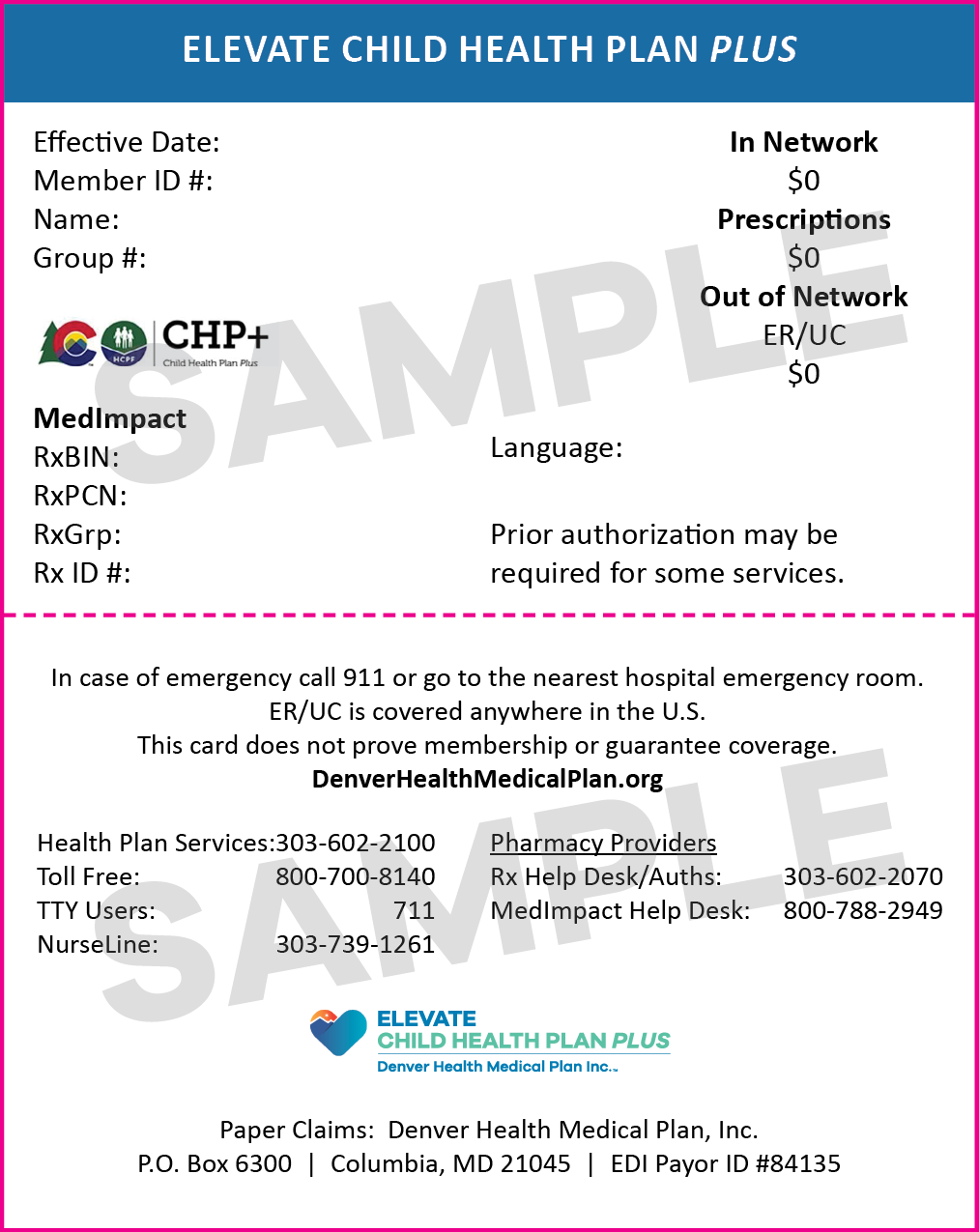
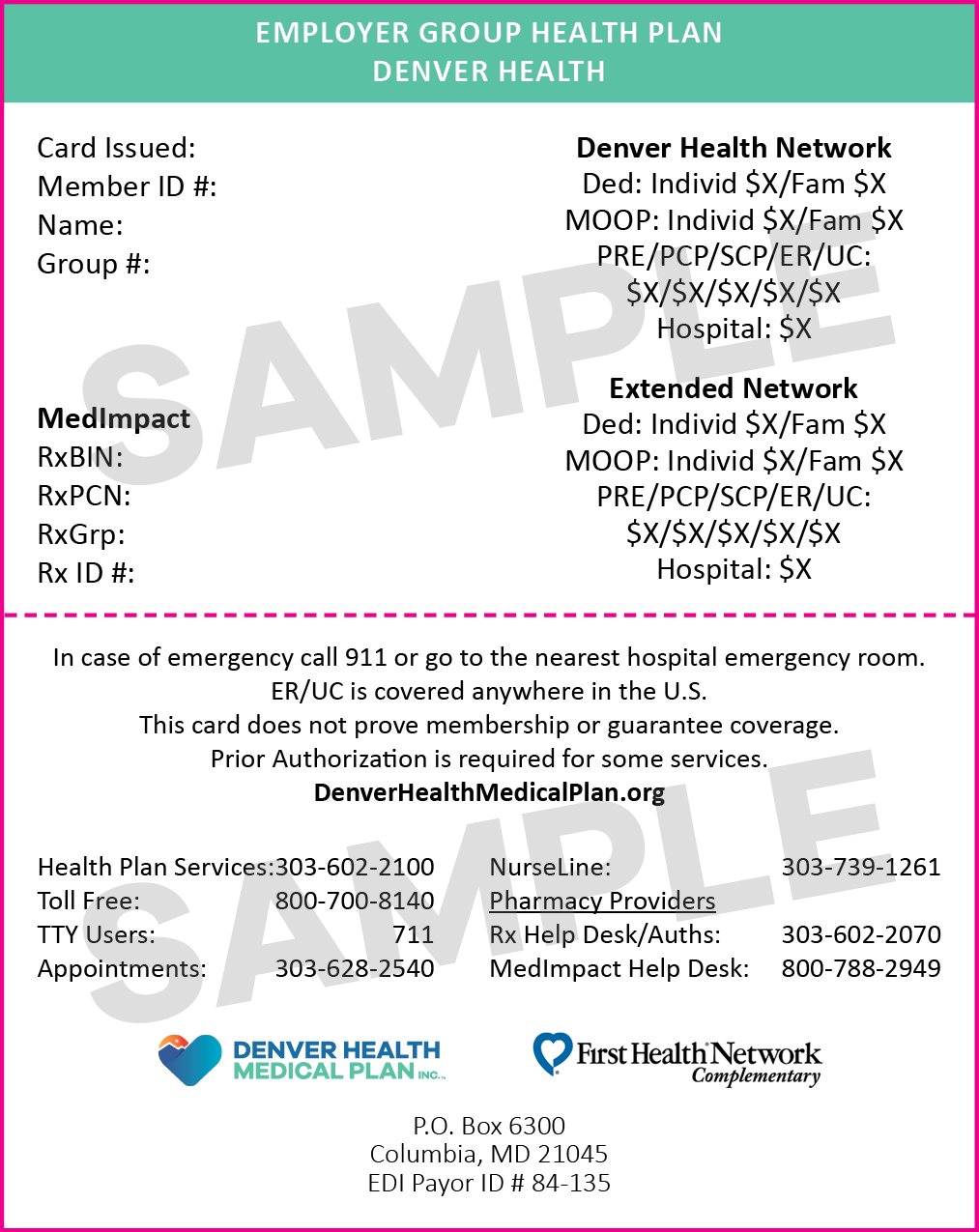
Elevate Medicare Advantage is a Medicare-approved HMO plan. Enrollment in Elevate Medicare Advantage depends on contract renewal. The Plan also has a written agreement with the Colorado Medicaid Program to coordinate your Medicaid benefits.
H5608_DHMPWeb26 | Last updated 12/26/25

